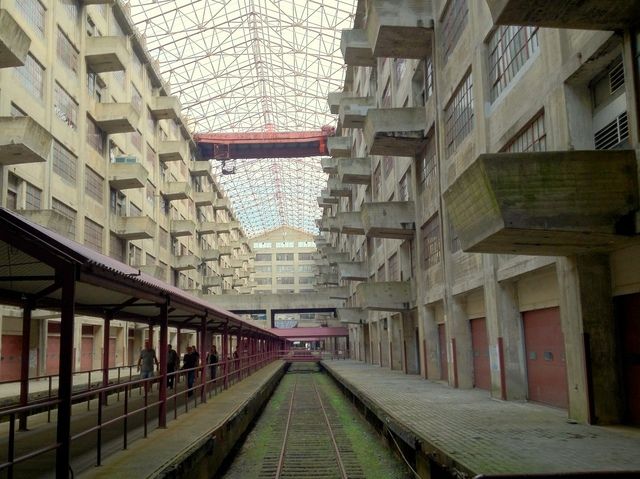Last-Minute NYC Holiday Gift Guide 🎁
We’ve created a holiday gift guide with presents for the intrepid New Yorker that should arrive just in time—


Image by Andrew Gustafson
Last week, we began our series on the myths of the Brooklyn Army Terminal, letting you know where Elvis set foot on the premises (not where you think!) and clarifying the “abandoned” status of the building. Today, we’re continuing with another myth. Join us for our next tour of the magnificent building on Sunday, October 26th with Turnstile Tours. Tickets here.
1. What is up with those crazy balconies?
The centerpiece of the Brooklyn Army Terminal is the stunning atrium in Building B. BAT was designed as an intermodal shipping port, able to move cargo and personnel seamlessly between trains and ships. Trains could drive directly into Building B and offload their cargo, which would then be picked up by a cable suspended from two 5-ton overhead cranes that could travel the length of the 760-foot atrium space. The balconies are cantilevered and offset so that the overhead crane can access every level and every sector of the building. Once cargo was offloaded into these balconies, it could be moved between all the buildings of the complex via skybridges, down to the piers, and onto the waiting ships. The facility was designed by architect Cass Gilbert, and though the design appears unique today, he borrowed the idea from one of Henry Ford’s early automobile plants, designed by Albert Kahn.
Today, the atrium is no longer accessible to trains (though we do have a former LIRR train marooned in the atrium), and the space serves as a central corridor for the building. Many of the tenants have put the balconies to creative uses, building gardens, housing their HVAC systems, and even erecting sukkahs for the Jewish festival of Sukkot.
Read on to discover where Elvis set foot in the BAT and how many soldiers and supplies were sent over in WWII.
Subscribe to our newsletter